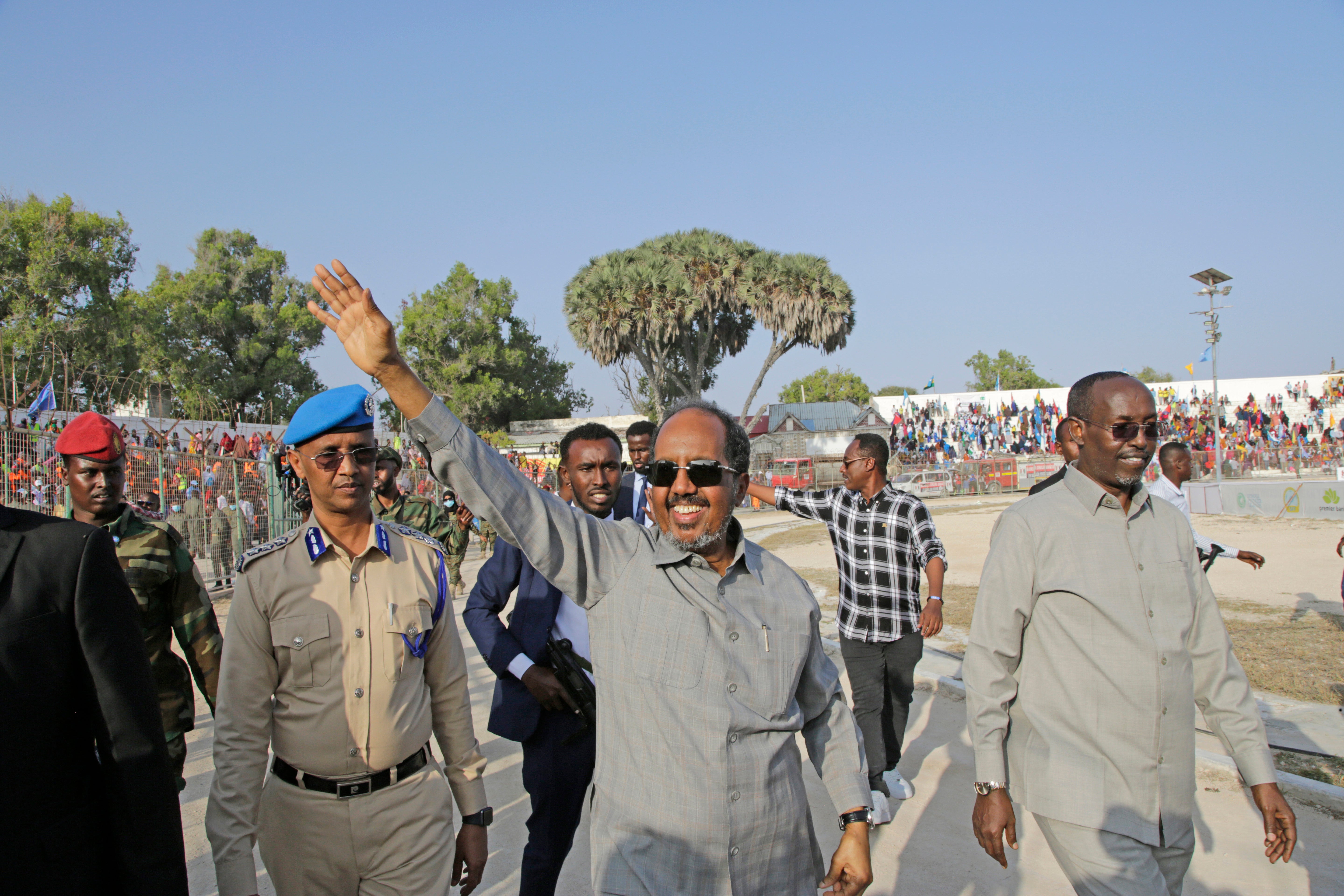African Union urges nearly $90 million for its Somali force
The African Union is appealing for nearly $90 million for its peacekeeping force in Somalia as it provides support to the country's military forces battling al-Shabab extremists

Your support helps us to tell the story
From reproductive rights to climate change to Big Tech, The Independent is on the ground when the story is developing. Whether it's investigating the financials of Elon Musk's pro-Trump PAC or producing our latest documentary, 'The A Word', which shines a light on the American women fighting for reproductive rights, we know how important it is to parse out the facts from the messaging.
At such a critical moment in US history, we need reporters on the ground. Your donation allows us to keep sending journalists to speak to both sides of the story.
The Independent is trusted by Americans across the entire political spectrum. And unlike many other quality news outlets, we choose not to lock Americans out of our reporting and analysis with paywalls. We believe quality journalism should be available to everyone, paid for by those who can afford it.
Your support makes all the difference.The African Union appealed for nearly $90 million Wednesday for its peacekeeping force in Somalia, which is providing support to its military forces battling al-Shabab extremists.
Ambassador Bankole Adeoye, the AU commissioner for political affairs, peace and security, told two reporters that the more than 19,600-strong AU force won’t be able to function properly and help the Somalis unless that funding gap is filled.
A year ago, the U.N. Security Council unanimously approved a new African Union Transition Mission in Somalia, known as ATMIS, to support the Somalis until their forces take full responsibility for the country’s security at the end of 2024.
If the AU force doesn’t have the funds to operate effectively in the coming 21 months before the handover, Adeoye said, “it may mean that al-Shabab will eventually take over the responsibilities of a state in Somalia.”
“The implications are huge,” he said. “And we do not want the international community to lose focus or have diverted attention away from Somalia, because it’s been on for almost two decades.”
Adeoye said the current Somali government is doing what many in the past never did — launch a full-scale offensive against al-Shabab instead of responding to al-Shabab attacks — and “there’s a need to encourage that offensive onslaught.”
He said a key reason for the AU financial plight is the European Union’s $60 million cut in funding because of competing interests.
Adeoye attended a high-level meeting with U.N. member nations on financing for ATMIS after speaking to the reporters. He expressed hope that all countries help fill the $89 million funding gap, especially Gulf nations, the global south and the EU.
The government of Somalia’s President Hassan Sheikh Mohamud declared “total war” last year on the thousands of al-Qaida-linked al-Shabab extremists. For more than a decade they have controlled parts of the country and carried out devastating attacks while exploiting clan divisions and extorting millions of dollars a year in their quest to impose an Islamic state.
The current offensive was sparked in part by local communities and militias driven to the brink by al-Shabab’s harsh taxation policies amid the country’s worst drought on record.
The United States has increased its military assistance to Somalia as it has seen success in battling al-Shabab, with 61 tons of weapons and ammunition arriving in the capital Mogadishu on March 1.
“The West is supporting Ukraine in the fight for the protection of their sovereignty, but Ukrainians are doing the fight,” Adeoye said. “So now the Somalis are doing the fighting, and we need to all encourage that fight by ensuring that the peace support operation of the African Union does not fail."
He said a lack of resources will affect the withdrawal date for the AU force, and he warned that an uncoordinated AU withdrawal would be worse than the chaotic withdrawal of U.S.-led NATO forces from Afghanistan in August 2021. He added that "it will affect the whole region."
Adeoye said everyone’s assessment is that the Somali forces have “improved tremendously militarily” and on the political side, where they worked with the AU in supporting elections last year.
But Adeoye said al-Shabab has been in Somalia for almost 20 years and it is definitely trying to adapt to a more robust Somali security force.
“They are resilient, so we have to be above game, and that’s why we are not just asking for resources to train, to pay troops,” he said. “We’re asking for resources for equipment as well — for the best state-of-the-art offensive weapons from the U.S., from those with the wherewithal to make an impact, and double-up what the Somali government is doing.”
Subscribe to Independent Premium to bookmark this article
Want to bookmark your favourite articles and stories to read or reference later? Start your Independent Premium subscription today.